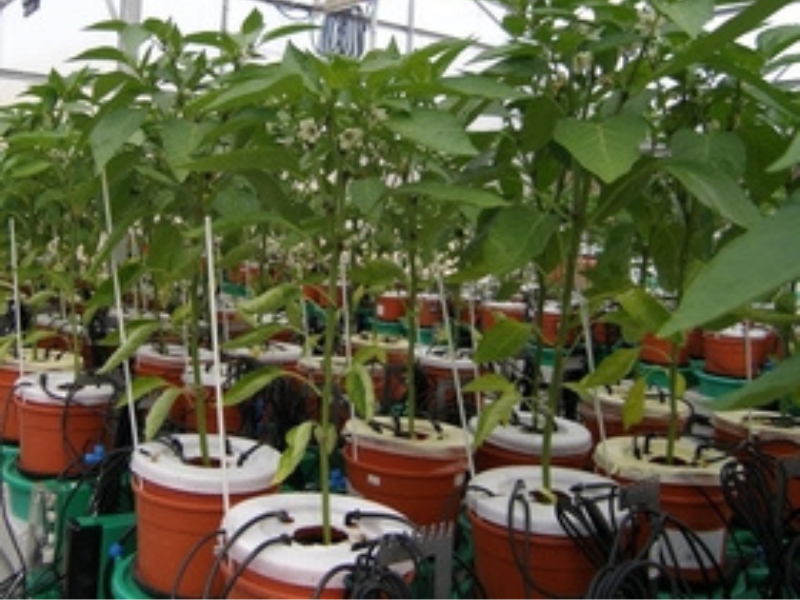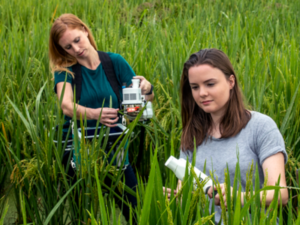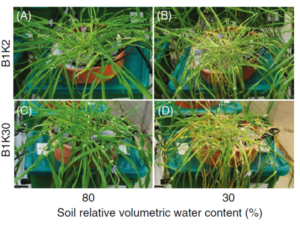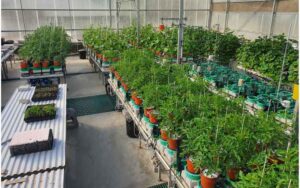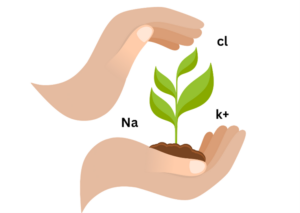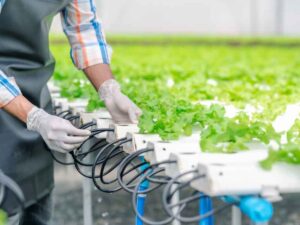Biostimulants are substances or microorganisms that, when applied to plants or the rhizosphere, stimulate natural processes to enhance or benefit nutrient uptake, nutrient efficiency, tolerance to abiotic stress, and crop quality. This effect is independent of the product’s own nutrient content.
The category of plant biostimulants is broad and includes diverse formulations such as: humic and fulvic acids, which are organic components of soil; protein hydrolysates and amino acids that serve as building blocks for metabolic processes; seaweed extracts rich in plant hormones and minerals; and beneficial microorganisms like mycorrhizal fungi and plant growth-promoting bacteria (PGPR). Unlike fertilizers, a biostimulant doesn’t directly provide nutrients but rather improves the plant’s ability to utilize them, functioning more like a catalyst for its intrinsic physiological processes.
How Do Plant Biostimulants Work in Agricultural Practice?
The application of plant biostimulants spans all stages of agriculture, from seed to postharvest. They can be applied as a seed treatment to improve germination and early vigor. During the plant’s growth cycle, they are commonly applied as foliar sprays or through the soil via irrigation systems (fertigation).
Their functions are disparate and depend on their composition. For example, seaweed extracts can modulate plant growth through naturally occurring phytohormones, while humic acids improve soil structure and increase the availability of essential minerals to the plant’s roots. Beneficial microorganisms establish symbiotic relationships with the plant; mycorrhizal fungi can extend the root system’s reach for water and nutrients, while certain bacteria can fix atmospheric nitrogen, making it available to the plant, thereby promoting robust growth and health.
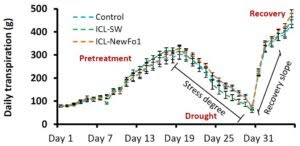
Why is Characterizing a Biostimulant’s Mode of Action Such a Complex Scientific Challenge?
Extensive literature suggests that biostimulants decrease the negative effects of abiotic stress, particularly drought stress; nevertheless, information about their physiological mechanisms of action is limited and their effects are hard to quantify.
Unlike a chemical fertilizer with a direct, measurable input, a biostimulant triggers a complex cascade of biochemical and genetic responses within the plant. Its efficacy is highly dependent on the plant species and cultivar, its developmental stage, and dynamic environmental conditions. The large number of potential candidate biostimulants and the need to elucidate their particular modes of action, optimal concentrations, and types of application create a substantial bottleneck in the research and development of new products. This gap between lab formulations and proven field impact is a primary hurdle for the industry.
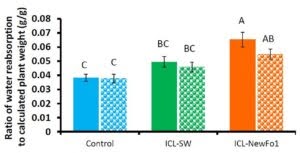
How Can Modern Technology Help Bridge the Gap in Biostimulant Research?
To overcome these challenges, researchers are turning to high-throughput, functional phenotyping platforms. A new article describes a cost-effective, pre-field phenotyping platform that uses a high-throughput functional phenotyping system composed of gravimetric systems (Plant-Diatech’s Plantarray) to screen the effects of two commercial biostimulants on pepper under different irrigation regimes and to study their physiological mechanisms of action.
The system enabled the researchers to compare dynamic plant responses to different ambient conditions, due to its ability to directly and simultaneously measure the yield-related physiological traits of all plants under several treatments. This provides a deep dive into how the plant is functioning—its water use, transpiration rate, and biomass gain—in real-time.
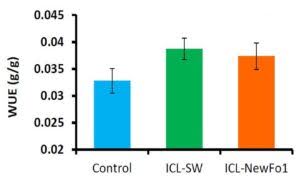
What Did the Pepper Plant Study Reveal About the Action of Specific Biostimulants?
Consequently, the researchers were able to reveal the mechanism of action of the two products under well-irrigated and drought conditions. The quantitative data allowed them to precisely characterize how each biostimulant influenced the plant’s physiological strategy.
For instance, the study, published in Frontiers in Plant Science (Negin et al., 2017), demonstrated that one biostimulant improved the plant’s Water Use Efficiency (WUE) under mild stress, enabling it to continue photosynthesis and growth more effectively than untreated plants. The second biostimulant, however, showed a more pronounced effect under severe drought conditions, where it helped the plant activate its defense mechanisms to conserve water by inducing earlier stomatal closure, thereby prioritizing survival over immediate growth.
What is the Difference Between a ‘Productivity-Enhancer’ and a ‘Survivability-Enhancer’ Biostimulant?
A key insight from this research was the classification of the products as ‘productivity-enhancer’ and ‘survivability-enhancer’ biostimulants. This functional distinction is critical for practical application. A ‘productivity-enhancer’ biostimulant is most effective under optimal or mild-stress conditions. It helps the plant maximize its photosynthetic rate and biomass accumulation, aiming for higher yields.
In contrast, a ‘survivability-enhancer’ biostimulant demonstrates its value under severe stress. Its primary role is to trigger the plant’s defense and conservation mechanisms to endure harsh conditions, such as prolonged drought. It helps the plant minimize water loss and stay alive until conditions improve, even at the temporary cost of productivity. This distinction helps farmers choose the right product based on their specific environmental challenges and agricultural goals.
Of course. Here is a table that supports the data, summarizing the functional comparison between the two types of biostimulants discussed in the article.
Functional Comparison of Biostimulant Types
This table outlines the key differences between ‘Productivity-Enhancer’ and ‘Survivability-Enhancer’ biostimulants, based on the findings from modern phenotyping research. This distinction helps in selecting the appropriate product for specific agricultural goals and environmental conditions.
| Feature | ‘Productivity-Enhancer’ Biostimulant | ‘Survivability-Enhancer’ Biostimulant |
| Ideal Conditions | Optimal or mild-stress environments. | Severe stress conditions (e.g., extreme drought, high salinity). |
| Primary Plant Goal | To maximize growth and yield potential. | To survive the stress period and enable recovery. |
| Key Mechanism | Enhances photosynthesis, nutrient uptake, and metabolic efficiency. | Triggers defense responses, promotes water conservation (e.g., stomatal closure), and protects cells from damage. |
| Primary Outcome | Higher Yield & Better Quality 📈 | Increased Plant Survival Rate 🛡️ |
| Analogy | A sprinter using all energy to achieve maximum speed and win the race. | A marathon runner conserving energy and resources to endure the long race and finish. |
What Does the Future Hold for the Development of New Plant Biostimulants?
This type of diagnostic system may be an efficient tool for a better understanding of pre-field plant-environment interactions by studying water-related physiological mechanisms under different conditions. Such platforms allow for the rapid and accurate screening of numerous potential plant biostimulants, identifying their specific modes of action and optimal use cases long before expensive and time-consuming field trials.
This de-risks the development process and accelerates the journey from lab discovery to market. By providing a clear, science-based understanding of what a product does and how it does it, this technology helps move the biostimulant industry away from anecdotal claims and toward precise, reliable solutions for sustainable agriculture. 🌍
Ready to explore how precision plant-physiology tools can accelerate your biostimulant research? Discover the full potential of advanced phenotyping with Plant-Ditech — empowering scientists and agritech innovators to bring proven, sustainable solutions to market faster.
Bibliography
- du Jardin, P. (2015). Plant biostimulants: Definition, concept, main categories and regulation. Scientia Horticulturae, 196, 3-14.
- Negin, B., Sofi, M., & Moshelion, M. (2017). A High-Throughput Functional-Phenotyping Platform for the Pre-field Screening of Biostimulants. Frontiers in Plant Science, 8, 1695.
- Calvo, P., Nelson, L., & Kloepper, J. W. (2014). Agricultural uses of plant biostimulants. Plant and Soil, 383(1-2), 3-41.

